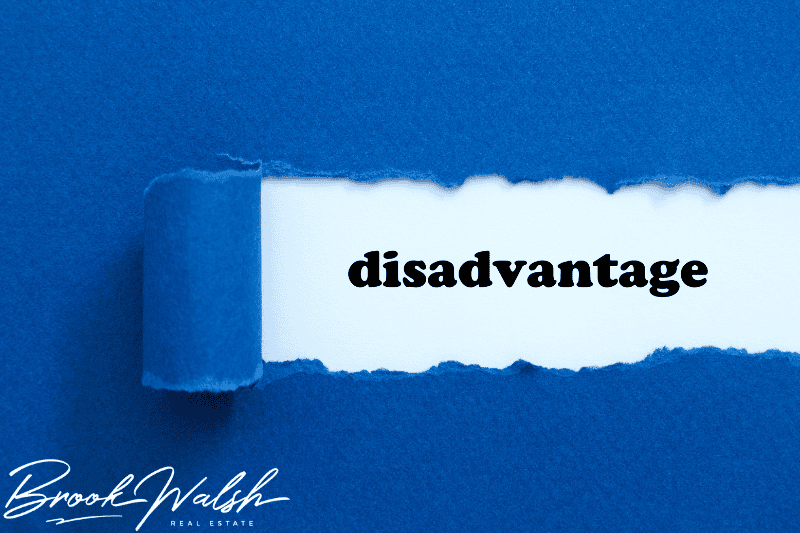Pros and Cons of a DSCR Loan
In the world of real estate investing and business finance, securing the right type of loan can make or break your long-term success. One increasingly popular option is the DSCR loan—short for Debt Service Coverage Ratio loan. These loans focus primarily on the income generated by a property rather than the borrower's personal financials.
Let’s explore the pros and cons of a DSCR loan, understand how they work, and see whether they’re the right fit for your investment goals.
What Is a DSCR Loan?

A DSCR loan is a type of mortgage or business loan that bases approval on the property’s cash flow, not your personal income or creditworthiness. Lenders look at how well the income from the asset (like a rental property) can cover its debt obligations.
This type of loan is popular among real estate investors, landlords, and self-employed borrowers who may not have W-2 income or standard documentation but have properties that generate reliable income.
Understanding DSCR (Debt Service Coverage Ratio)
The Debt Service Coverage Ratio is a key metric lenders use to determine whether a property is generating enough income to cover the loan payment. It’s calculated as:
DSCR = Net Operating Income (NOI) / Total Debt Service
-
A DSCR of 1.0 means the income is just enough to cover loan payments.
-
A DSCR above 1.25 is generally preferred by lenders, indicating a healthy buffer.
-
Anything below 1.0 often results in loan denial.
This ratio shifts the focus away from personal finances and zeroes in on asset performance.
Common Uses of DSCR Loans
-
Purchasing rental properties
-
Refinancing investment properties
-
Commercial property acquisitions
-
Portfolio growth for landlords
-
Short-term vacation rentals (Airbnb)
Major Advantages of a DSCR Loan

No Personal Income Verification Needed
DSCR loans are perfect for borrowers who can't easily prove income, such as:
-
Freelancers
-
Self-employed individuals
-
Full-time investors
Since lenders only care about the property's cash flow, you skip the hassle of tax returns, pay stubs, or employment verification.
Fast Approval Process
Because DSCR loans involve fewer documentation requirements, they can be processed and approved faster than traditional loans. This is especially beneficial in competitive markets where timing is crucial.
Focus on Cash Flow, Not Credit Score
While your credit score still matters, it's not the primary approval factor. A strong rental property can offset a less-than-perfect credit history.
Scalable for Multiple Properties
Unlike conventional loans that often limit the number of mortgages you can hold, DSCR loans are more flexible. Investors can use them to build a larger portfolio of rental properties.
Flexible Loan Terms
Many lenders offer:
-
Interest-only options
-
30-year fixed rates
-
Adjustable rates
-
Balloon payments
These flexible structures help you tailor the loan to your investment strategy.
Disadvantages of a DSCR Loan

Higher Interest Rates Compared to Conventional Loans
Since lenders take on more risk, they charge higher rates—often 1–2% more than traditional loans.
Requires Strong Rental Income
If the property isn't generating enough income, you won’t qualify. Vacancies, low rents, or poor location can tank your application.
Large Down Payment Often Needed
Be ready to put down at least 20–25% of the property’s value. Some lenders may require even more for high-risk markets.
Limited Availability Based on DSCR Threshold
If your property’s DSCR is below the required minimum (typically 1.0–1.25), you may be out of luck—even if you have other strong financial indicators.
May Involve Prepayment Penalties
DSCR loans sometimes come with early payoff restrictions, which can reduce flexibility if you plan to refinance or sell early.
Who Should Consider a DSCR Loan?
DSCR loans aren't for everyone—but they’re a perfect fit for certain types of borrowers. Here's who stands to benefit the most:
Real Estate Investors with Multiple Properties
Seasoned investors looking to expand their real estate portfolios often hit a ceiling with traditional lenders. DSCR loans remove that ceiling by focusing solely on how well the properties perform—not how many loans you’ve taken.
Benefits for Investors:
-
Easier to scale a property portfolio
-
Less paperwork for each additional property
-
More favorable terms based on cash flow, not personal debt
Self-Employed Borrowers
Freelancers, business owners, or independent contractors often face challenges proving stable income. Since DSCR loans don’t require W-2s or tax returns, they are tailor-made for:
-
Entrepreneurs
-
Digital nomads
-
Gig workers
If you can prove that the property generates sufficient rental income, you’re good to go.
When to Avoid a DSCR Loan
Although DSCR loans offer flexibility, they’re not suitable in every situation. Consider avoiding them if:
-
Your investment property doesn't generate reliable income.
-
You're hoping for low interest rates or minimal down payments.
-
You plan to flip the property quickly (due to prepayment penalties).
-
You have a conventional income source and qualify for better rates elsewhere.
In these cases, traditional financing might save you money and hassle in the long run.
DSCR Loan vs Conventional Loan: Key Differences

Let’s break down the core differences between DSCR and conventional loans.
| Feature | DSCR Loan | Conventional Loan |
|---|---|---|
| Approval Based On | Property’s cash flow (DSCR) | Personal income (DTI) |
| Credit Score Emphasis | Moderate | High |
| Down Payment | 20–25% or more | As low as 3–5% (for qualified buyers) |
| Loan Limits | Few limits on number of properties | Often limited to 10 financed properties |
| Speed of Approval | Fast | Slower due to more paperwork |
| Ideal For | Investors, self-employed | Primary homebuyers, salaried workers |
This chart highlights how DSCR loans are geared toward cash-flow-focused investments, while conventional loans prioritize income stability and creditworthiness.
Real-Life Example of a DSCR Loan in Action
Let’s say Sarah, a self-employed digital marketer, wants to buy a duplex that generates $3,000 in monthly rental income. The total monthly loan payment would be $2,200. Here's how the DSCR works out:
-
Net Operating Income (NOI): $3,000
-
Debt Service: $2,200
-
DSCR = 3,000 / 2,200 = 1.36
With a DSCR of 1.36, Sarah’s property passes the lender's requirement. She gets approved without showing tax returns or personal income proof, allowing her to invest confidently.
Tips for Getting Approved for a DSCR Loan
Want to boost your odds of approval? Follow these smart tips:
-
Choose High-Cash-Flow Properties: The higher your DSCR, the better.
-
Maintain Good Credit: While not the focus, a decent credit score helps.
-
Prepare a Solid Rent Roll: Show consistent rental income and tenant occupancy.
-
Reduce Vacancy Risks: Opt for desirable locations to avoid empty units.
-
Work with DSCR-Savvy Lenders: Choose lenders who specialize in investment property loans.
By prepping your documents and understanding lender expectations, you can streamline your loan process and secure better terms.
Frequently Asked Questions About DSCR Loans

1. What is a good DSCR for loan approval?
Most lenders require a minimum DSCR of 1.20, but some accept as low as 1.00. The higher, the better—it shows your property easily covers its debt.
2. Can I get a DSCR loan with bad credit?
Yes, but you may face higher interest rates. Lenders prioritize cash flow over credit, though a credit score of 620 or higher is often preferred.
3. Are DSCR loans only for real estate?
Primarily, yes. DSCR loans are used for income-generating properties, but some businesses also use the DSCR concept for funding.
4. Do DSCR loans have prepayment penalties?
Some do, especially non-QM loans. Always check the terms to avoid fees if you plan to pay off early or refinance.
5. Can I use projected rental income?
Sometimes. Lenders may allow future rent estimates based on appraisals, but actual rent rolls carry more weight.
6. What is the typical interest rate for DSCR loans?
Rates vary by lender, but they are usually 1–2% higher than conventional loans, ranging from 6.5% to 9% as of 2024.
Final Verdict: Are DSCR Loans Worth It?
If you’re a real estate investor or a self-employed buyer looking to scale without showing traditional income, then yes—DSCR loans are worth it.
They offer:
-
Quick approvals
-
Scalable investment opportunities
-
Flexibility with minimal personal financial scrutiny
However, if you're after the lowest interest rates and have verifiable W-2 income, conventional loans may be a better deal.
Bottom line: DSCR loans empower investors to grow strategically—but only when backed by well-performing assets.
External Resources & References
Disclaimer for BrookWalsh.com
The information provided on BrookWalsh.com is for general informational and educational purposes only. All content on this website is published in good faith and is not intended as professional financial, legal, investment, or real estate advice. Any reliance you place on such information is strictly at your own risk.
BrookWalsh.com makes no warranties regarding the accuracy, completeness, or reliability of any information found on this site or through any linked content. While we strive to keep the information up-to-date, we do not guarantee that the information is current, applicable, or suitable for your specific situation.
Any links to external websites are provided for convenience only and do not imply endorsement or responsibility for the content, services, or products offered by those third-party sites.
All real estate data, mortgage rates, and financial tools are subject to change without notice and may not reflect the latest market trends or conditions. We recommend consulting with licensed professionals such as real estate agents, mortgage brokers, financial advisors, or attorneys before making any decisions based on information obtained from this site.
By using this website, you agree to the terms of this disclaimer. If you do not agree, please refrain from using BrookWalsh.com.
For questions or concerns regarding this disclaimer, please contact us directly through our contact page.
Posted by Brook Walsh on

Leave A Comment